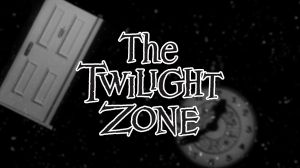After years of keeping all of Disney’s intellectual property as close to home as possible, a Disney source tells Bloomberg that pressure to rein in streaming costs could result in the studio selling movies and shows to other companies. It isn’t as radical an approach as it may sound — many studios produce content, which is then put on the market for the highest bidder to distribute — but it’s a departure for Iger in particular and Disney in general. Even before the advent of streaming and the launch of Disney+, the studio has always liked to control distribution more tightly than most.
Videos by ComicBook.com
Disney has not commented on the report, and likely will not. Next week, Iger will preside over an earnings call for stockholders, and during that call, will present some more concrete steps he is taking to improve Disney’s performance.
When Iger retired in 2020, he handed control of the company over to former Disney Parks chief Bob Chapek, who made some radical changes during his short time as CEO. Iger remained on the board, and wasn’t shy when it came to decisions he did not like. So when the company turned in its stock market performance in decades in 2022, it was clear that change was on the way.
Disney’s streaming division reportedly posted a $1.5 billion loss in the third quarter last year, which pushed the board to remove Chapek and bring Iger out of retirement in the hopes of righting the ship. He has been quick to make changes, many of which are just undoing decisions that Chapek made, but some argue he is not making dramatic enough changes. Activist investor Nelson Peltz has been trying to get himself a seat on the board, where he would have more power to force changes.
Most streaming services have been operating at a loss basically since the dawn of the streaming era. Typically, executives and investors have tolerated it, because streaming is seen as the future of film and television, and so building up a quality streaming platform is a long-term strategic investment. With the recent economic downturn, there has been mounting pressure on studios to minimize any losses, and it has led to some wild strategies in order to drive short-term profits.
Disney still has some content on other streaming platforms, and always has — but beginning in 2019 with the launch of Disney+, not only did they start pushing all of their biggest releases directly onto the platform, but they also decided not to release any Disney+ originals on physical media. That means the company took on some big losses, both in terms of license fees they used to get from other streamers to distribute Disney projects, and from home video sales — an area where Disney remains one of the biggest and most successful players.








